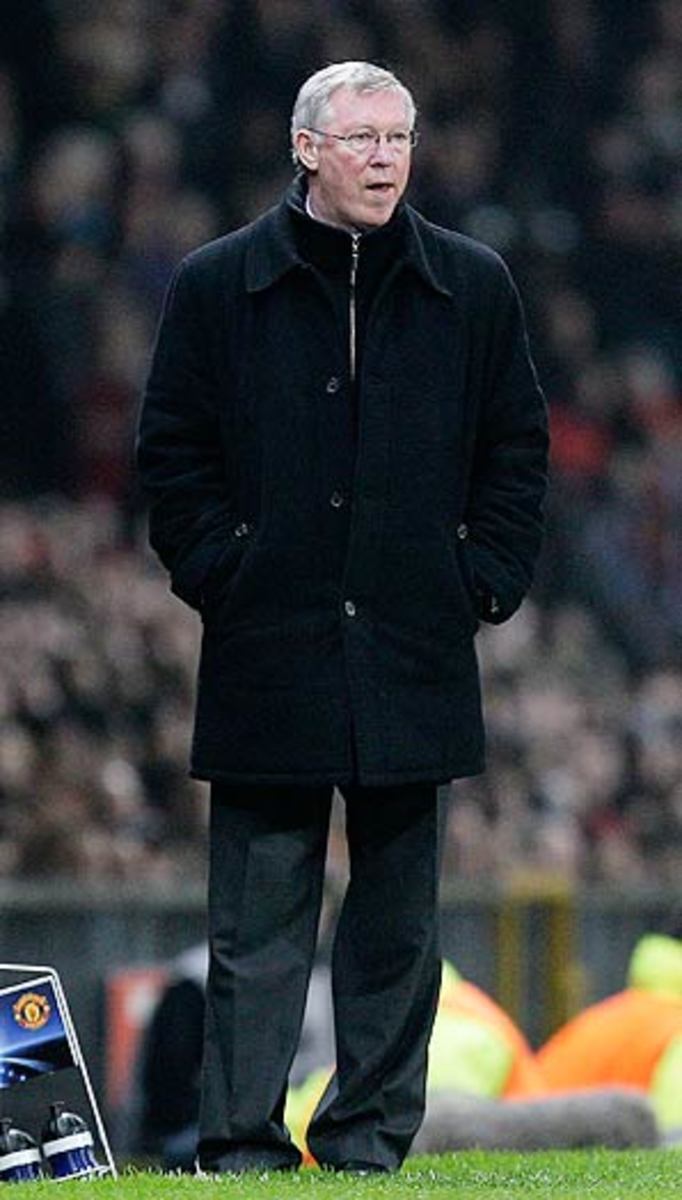Motivated Ferguson, Man United seek revenge for '09 loss to Barca
"At times [United has] not played the football they wanted to, but ultimately it is about grinding out results," said former striker Andrew Cole, admiring the trophy he lifted five times in six years, before the engravers etched "Manchester United" in to the base once again this week. "Results, results, results. United [has] done that more than enough times to win the league."
In black and white on the page, that hardly seems a ringing endorsement. But when you consider how the Premier League's top teams stumbled in a surprisingly competitive season (remember Chelsea's trip to St. Andrews, for instance, or Arsenal's visit to St. James Park), United's knack for staying ahead is indeed testament to something special.
Throughout Ferguson's 25-year tenure with United one player has always embodied the character of his best sides: the majestic swagger of Eric Cantona in 1994; the fists-clenched bullishness of Roy Keane in 1999; and the peacock strut of Cristiano Ronaldo in 2008.
Though it will be bookmarked by the emergence of Javier Hernandez, this season it is Ferguson's turn to symbolize, as well as mastermind, the club's success.
"Everything comes from the manager's mentality," says Cole. "Arsenal had so many chances to win the league. If Manchester United had been in Arsenal's position, the boss would have brought them through to win it. He's just got this drive."
With the Premier League trophy already safely housed at Old Trafford, Ferguson's attention turns this week to the Champions League final. (In that competition, too, it is difficult to recall an emphatic win prior to the semifinal meeting with Bundesliga outfit Schalke 04; utilizing the full depth of the squad United, again, grinded out results.) Between him and a third European triumph -- United's fourth -- stands Barcelona, just as it did two years ago. In Rome in 2009, Ferguson's men collected runners-up medals, their manager visibly perturbed by the ease with which they had been beaten after a promising start.
That ups the ante in the psychological bat-and-ball that must precede the match. Ferguson conceded in 2009 that the better side had won, and though he was adamant this week he would not tailor his lineup to counter the threat of Lionel Messi and his teammates ("It's about us, too -- what's best for us"), he said the Catalans had got even better since. Barcelona responded in kind: Pep Guardiola and several players stressed United's improvement in the last two years, while Javier Mascherano suggested that it could take extra time to separate the teams.
United's midfield's inability to cope with Barcelona's flawless passing two years ago lends such comments a hint of generosity, yet their assessments feel right -- as a unit, United operates more smoothly now than they did then, when a youthful Anderson was overwhelmed by his duties and Ronaldo at times allowed his ego to get the better of his judgment.
The central third of the pitch will again be the key battleground, and United has excelled at controlling it in important games using a five-man midfield. Ferguson's starting XIs are virtually impossible to second-guess, but his comments suggest he is at least considering sticking with the 4-4-2 formation that has served United so well of late. That would be a statement of confidence in the ability of Michael Carrick, who endured a tough time against Xavi and Andres Iniesta at the Stadio Olimpico, and Ryan Giggs, who has endured a tumultuous couple of weeks in the public eye, to take hold of the ball, keep it and create chances.
It would also emphasize the role of Hernandez and Wayne Rooney. Ferguson has not had a partnership with such potential since Cole was playing alongside Dwight Yorke in United's Treble-winning days.
"Ruud [van Nistelrooy] was an individual goal scorer," says Cole. "Ronaldo brought individual brilliance. At some stage you want a partnership like ours, it's something people don't want to play against. I look at games like this and think: 'if only'."
Rooney and Hernandez have already scored 20 goals in one another's company, and this hold-your-breath duo would be a new challenge for Barcelona's defense, which restricted United to two shots on target in the 2009 final.
It is not only recent history that looms large over this fixture. It was at Wembley, in 1968, that United first won the European Cup. (In fact, on the two occasions that the national stadium in London has hosted English clubs in the final, they have lifted the trophy: Liverpool beat FC Bruges there 10 years later, in 1978.) Matt Busby's '68 side had all the fantasy that the 2011 vintage is supposed to lack, but the parallels are not entirely tenuous. Previews of the final against Benfica hailed the significance of the manager's force of will, inspiring a team defeated (at the semifinal stage) two years earlier. After United won 4-1, the Guardian reported that: "This was a great triumph of team work and team spirit." A fitting epitaph for United's season, perhaps, irrespective of the result on Saturday.





